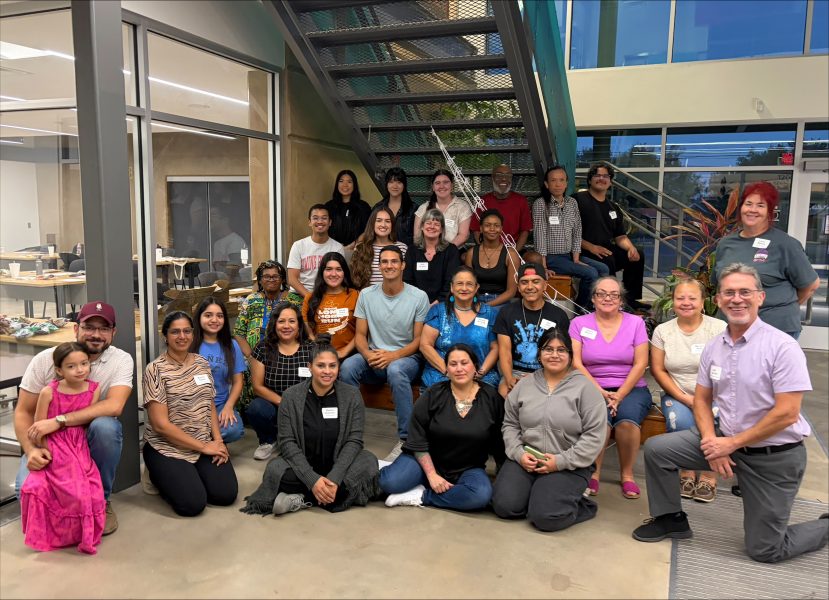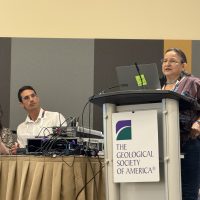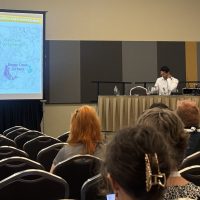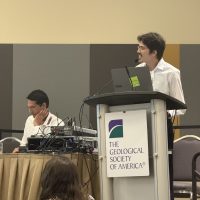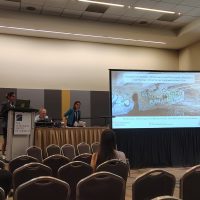CRESSLE
The Environmental Science Institute is partnering with faculty researchers and Austin community members to address issues of community resilience to improve outcomes for all communities in Austin. This project is a collaboration involving faculty from the University of Arizona, as well as faculty and researchers from the Jackson School of Geosciences, the Moody College of Communication, the College of Liberal Arts, Dell Medical School, the LBJ School of Public Affairs, the School of Law and local community organizations and other stakeholders, including People Organized in Defense of Earth and Her Resources (PODER).
Project CRESSLE, Community Resilience integrated into an Earth System Science Learning Ecosystem, will partner UT researchers with communities from Austin neighborhoods to assess community needs, and create a community of practice that will design and implement community-driven research projects addressing community resilience and sustainability challenges. Projects will address resilience via four research themes: Water Resources, Climate Resilience, Communities and Land Use, and Air Quality.
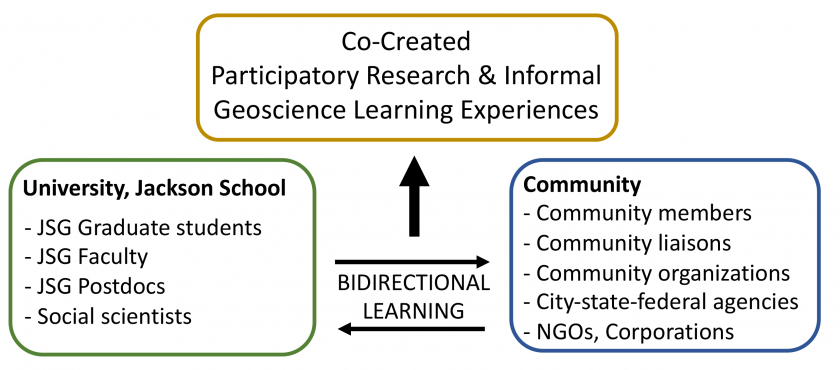
University researchers, community members and community partner, PODER, are part of the Project CRESSLE team.
For additional information about CRESSLE, please contact us at esi@esi.utexas.edu.
For information for prospective graduate students, please select the “Graduate Students” tab.
Project CRESSLE will tackle community-based problems affecting neighborhoods in Austin. Project selection and co-design of research will be based on input from cohorts (UT researchers, Austin community members and community organization) and an analysis of issues of greatest community need. Participatory Research Projects will be developed across four research themes – Water Resources, Climate Resilience, Communities and Land Use and Air Quality.
Water Resources

Projects in this cohort will address three main water-quality resilience challenges that may disproportionately affect underresourced communities in east Austin. These are impacts on 1) water quality of the Colorado River by activities of upstream and local users, 2) water quality of local watersheds that drain to the Colorado River, from rapid urbanization, and aging municipal infrastructure.
Climate Resilience

Projects will focus on two key climate challenges faced by urban communities: extreme heat and extreme precipitation/flooding. Key elements include: 1) assessing the exposure of climate impacts, such as heating or rainfall across a city, as a function of atmospheric forcing, geography and landcover; 2) assessing social vulnerability of communities to understand how the same forcing can have disproportionate impacts across urban areas; and 3) investigating strategic solutions by aligning downscale geophysical data and social indicators of community resilience.
Communities & Land Use

Projects will address resilience challenges associated with land-use change, with implications for the value of civic green spaces, and food and water resource resilience. The geoscience approaches will involve geospatial and remote sensing analysis, and geochemical analyses of water and soil. These data will be used to study landscape changes, water quality and quantity, and soil quality.
Air Quality

Projects will focus on monitoring the air quality in communities in Austin and nearby regions, especially those impacted by identified industrial growth and associated operations. The monitoring locations will be identified through a participatory approach, and communication efforts will be developed and maintained to share findings with community members.
Jay Banner |
Susana Almanza |
Lucy Atkinson |
Monica Ramirez-Andreotta |
Patrick Bixler |
Bayani Cardenas |
Sergio Castellanos |
Dev Niyogi |
Tim Goudge |
Kelly Haragan |
Bob Duke |
Adam Papendieck |
Angela Smith |
Carmen Valdez |
Mashal Awais Environmental Science Institute |
Shirley Vincent |
Project CRESSLE Opportunities for Graduate Students
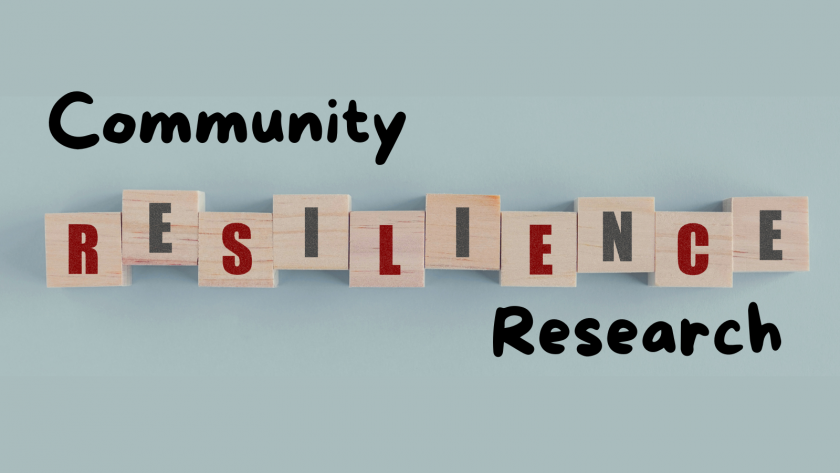
Prospective graduate students interested in applying geoscience to community resilience research can join Project CRESSLE. Graduate students will work with faculty via four research themes: Water Resources, Climate Resilience, Communities & Land Use or Air Quality.
Graduate students participating in Project CRESSLE will:
- Develop science communication skills
- Work in resilience and sustainability research
- Develop community-engaged participatory research projects
Visit the Research Themes page to connect with faculty involved with Project CRESSLE.
Jackson School of Geosciences

The graduate program at the Jackson School is top-ranked program geoscience program in the United States. Our program offers unmatched breadth and depth in education and research opportunities. Find out more details about the graduate program here.
Graduate Portfolios

Graduate portfolio programs provide opportunities for enrolled graduate students to obtain transcriptable credentials in cross-disciplinary academic areas of inquiry while they are completing the requirements for a master’s or doctoral degree in a particular discipline. Portfolio programs promote cross-disciplinary scholarship and study by bringing together faculty and students from a variety of disciplines whose interests transcend boundaries of traditional academic disciplines. Find out more about UT’s Portfolio programs here.
Career Resources

Career and academic research resources:
- Demystifying the Academic Research Enterprise
by Kelvin K. Droegemeier
Land Use
Erosion and change along the Lower Colorado River (LCR) is a concern for infrastructure and water resources. This erosion is likely impacted by changing land use in the surrounding and upstream neighborhoods. We aim to understand how erosion along the LCR compares in different sections of the river, focusing initially on the sections: (1) bordering Roy Guerrero park; (2) bordering Austin’s Colony; and (3) bordering McKinney Roughs Nature Park, as a ‘control’ site. Community members interested in the impact of land use change on river erosion are welcome to join this project to provide community-insight into the impacts of this erosion, and what ideal solutions would look like. Stakeholders would be the City of Austin and the Lower Colorado River Authority, and skills developed would be a better understanding of what causes river erosion, and how we measure it. Email: tgoudge@jsg.utexas.edu
Drinking Water Quality in Austin’s Colony
Austin’s Colony residents have received hard water and intermittent discolored water for over a decade. PODER and the University of Texas at Austin partnered to better understand water quality issues in the neighborhood. Findings revealed toxic metals in the drinking water and showed that mixing groundwater sources within the distribution network causes water quality changes. We invite community members to join ongoing efforts by helping collect household water samples, organize community meetings, and collaborate in developing solutions to improve local water quality. Email: banner@jsg.utexas.edu
Water Quality in Boggy Creek
Boggy Creek, located in East Austin, is one of the city’s most environmentally impacted water bodies and has a long history of pollution and infrastructure issues. This project assesses water quality in Boggy Creek to identify current contamination sources and explore how they relate to the community’s history and local perceptions. Findings show that leaking infrastructure allowed supply water and wastewater to enter the creek. Our collaboration with the Watershed Protection Department resulted in infrastructure repairs followed by a decrease in the bacteria levels in the creek and improved water conditions. We invite community members to join ongoing efforts by supporting water sampling, collecting oral histories, and strengthening the local social network to restore and improve access to Boggy Creek. Email: banner@jsg.utexas.edu
Oral Histories Project, Boggy Creek
Scientists have studied the habitat and environmental conditions in the Boggy Creek watershed for decades and can tell how urban development has decreased biodiversity and degraded water quality via contamination by bacteria and heavy metals. And yet such data tell not what residents remember: how these waters once contained different types of fish, flowers, and sand, how the creek prospered before all the concrete, what role the creek played in ways of living and knowing prior to gentrification. We invite community members to participate in an oral history project that promises to show how our relationship to local environments have changed over time. Through this project, fellows may learn how to conduct oral history interviews, interpret interview data through research coding methods, and/or help present interviews to public audiences through a digital website in collaboration with Austin Public Libraries. Email: megan.poole@austin.utexas.edu
Climate Resilience and Cool Pavements with City of Austin
The city of Austin is exploring heat mitigation strategies such as applying light-colored, solar-reflective coatings containing titanium dioxide (TiO₂) to roads. These coatings help lower surface temperatures, making streets cooler and more comfortable. We are interested in whether this type of approach is effective for neighborhoods like those of participating community members, or if it presents environmental tradeoffs that outweigh its benefits. Community members will help shape this research by sharing their perspectives on neighborhood heat challenges and environmental priorities, and by working with researchers to identify places where the sealant could benefit their community. Findings may guide decisions by the Texas Department of Transportation, and the City of Austin Watershed Protection Department. Email: banner@jsg.utexas.edu
Air Quality
Residents of Bastrop have suffered from high levels of dust due to open mining and extraction activities near their homes and schools. We have partnered with them to install an air quality sensor to monitor PM10 (particles with 10 microns in diameter or less, like those from dust), to understand concentration levels, daily patterns, and how they relate to different wind directions. This information has been used as input in a request to TCEQ to establish officially regulated monitoring sites. In the future, we are open to working with community members interested in exploring air quality impacts in their neighborhoods, leading conversations with neighbors about the measurements, and proactively exploring solutions to address the source of air pollution. Email: sergioc@utexas.edu
Environmental Law Clinic
The UT Environmental Clinic will be updating its 2017 guide to public participation at the Texas Commission on Environmental Quality. The existing guide outlines how communities can be involved in permitting, rulemaking, and enforcement. We’ll also creating slide presentations and possibly videos to supplement the guide for specific issues. We would love input on topics that should be included in the guide, the most useful way to present materials, etc. Email: kharagan@law.utexas.edu
Climate Resilience
Many neighborhoods in Austin have experienced the negative impacts of flooding. We’re exploring how communities make collective decisions around flood-risk management based on their own risk levels and social capital, and how those preferences can shape rebate or resource distribution programs. We’re looking for a community fellow to help ground this work in lived experience, help frame its real-world relevance, and contribute to this research by hosting meetings, sharing feedback and lived experience through interviews / listening sessions/focus groups. Email: rpbixler@austin.utexas.edu
- Almanza, Susana. Centering the Community in Community-Based Participatory Research: Lessons on University Partnerships from Project CRESSLE in Central Texas
- French, Jordan, Castellanos, Sergio. Tracking Environmental Inequities through Community-Partnered Air Monitoring Initiatives.
- Libbing, Sydney Q., Banner, Jay L., Porras, Abel, Clamann, Andrew. Trace Metals in Austin-area Streams: Baselines for Urbanization Impacts and Climate Resilience Planning
- Pagán González, Fernando J., Bahamón-Pinzón, David, Siegel, Helen G., Banner, Jay L. Impacts of Degrading Municipal Water Infrastructure on Resilience in a Water Stressed Region.
- Bahamón-Pinzón, David, Siegel, Helen, Leclercq, Alexia, Banner, Jay L., Pinon, Carlos, Almanza, Susana, Haragan, Kelly, Mullins, Laura, Pagán, Fernando, Cardenas, Meinhard Bayani R, Siddiqui, Nabeeha, Montoya, Didey. Drinking water quality assessment through community-based participatory research in a suburban neighborhood in Texas: The case of Austin’s Colony
- Wang, Yuer, Miniard, Deidra, Bixler, R. Patrick. Leveraging Community Survey Data: A Tool for Meaningful Community Engagement to Enhance Climate Resilience and Sustainability.
- Bahamón-Pinzón D, Siegel HG, Leclercq A, Banner J, Pinon C, Almanza S, Haragan K, Mullins L, Pagán F, Cardenas M, Siddiqui N, Montoya D. Identifying impacts and causes of drinking water quality issues through community-based participatory research in a suburban neighborhood in Texas: The case of Austin’s Colony. PLOS Water. In review: PWAT-D-25-00135.
- Helen G. Siegel, David Bahamón-Pinzón, Koorosh Azizi, Jay Banner, Susana Almanza, and Lucy Atkinson. Participatory Research: A Panacea for Science Skepticism in the Geosciences? Nature Geosciences. In review
